Copyright 2022 by Matt Fitzgerald and Ben Rosario Penguin Random House supports copyright. Copyright fuels creativity, encourages diverse voices, promotes free speech, and creates a vibrant culture. Thank you for buying an authorized edition of this book and for complying with copyright laws by not reproducing, scanning, or distributing any part of it in any form without permission. You are supporting writers and allowing Penguin Random House to continue to publish books for every reader. BERKLEY and the BERKLEY & B colophon are registered trademarks of Penguin Random House LLC. | Rosario, Ben, author. | Rosario, Ben, author.
Title: Run like a pro (even if youre slow): elite tools and tips for runners at every level / Matt Fitzgerald and Ben Rosario. Description: First edition. | New York: Berkley, 2022. Identifiers: LCCN 2021034764 (print) | LCCN 2021034765 (ebook) | ISBN 9780593201916 (trade paperback) | ISBN 9780593201923 (ebook) Subjects: LCSH: SportsPhysiological aspects. | Exercise. Classification: LCC RC1235.F583 2022 (print) | LCC RC1235 (ebook) | DDC 613.7/1dc23 LC record available at https://lccn.loc.gov/2021034764 LC ebook record available at https://lccn.loc.gov/2021034765 First Edition: March 2022 Cover design by Rita Carroll Cover photo by Jennifer Rosario Book design by Pauline Neuwirth, adapted for ebook by Kelly Brennan While the author has made every effort to provide accurate telephone numbers, Internet addresses and other contact information at the time of publication, neither the publisher nor the author assumes any responsibility for errors, or for changes that occur after publication.
Further, publisher does not have any control over and does not assume any responsibility for author or third-party Web sites or their content. pid_prh_6.0_139376041_c0_r0 For Jeff Johnson, running legend and so much more. Matt Fitzgerald For my high school coach Jim Linhares, who helped me fall in love with running and remains a role model to this day. Ben Rosario
INTRODUCTION
H I. MY NAME IS Ben Rosario. But you can call me Coach Ben, as a whole heck of a lot of runners have done for the past twenty years.
Lets skip the part where I tell you that I started running in middle school, and then ran cross-country and track in high school, and then ran in college. To be clear, I did all of that, but since this is a book on coaching, it seems more appropriate that I skip ahead to 2003, when, for the first time, I was officially given the Coach Ben moniker. I was living in Michigan and running (semi)professionally for the Hansons Brooks Original Distance Project, an elite team based in the suburbs of Detroit. For a few hundred bucks, I took a gig as an assistant coach at Van Hoosen Middle School. I worked with the distance runners, naturally (I know nothing about sprinting or field events), and, much to their delight, introduced them to the Swedish word for speed play, fartlek. New vocabulary aside, my approach to coaching those kids was based on a set of principles and methods that I, like most coaches, had borrowed from my own mentors and role models along the way.
Things like the importance of form drills, which I learned from my high school cross-country coach Jim Linhares. And the amazing, darn-near-magical powers of long-term aerobic development, which I learned from Coach Dave Barney when I attended the University of Arkansas cross-country camp in 1996. Or the idea of training to race, not training to train, that I learned from my hard-nosed, old-school college coach, Ed Schneider. Not to mention what I learned from my professional coaches, Kevin Hanson and, later, Greg McMillan. So many of the workouts that I have given to athletes at all levels through the yearsand a few of which I will share with you in this bookare versions of what I was given by Kevin when I was in Michigan, and by Greg when he coached me in the mid-2000s. In short, my coaching philosophy is something of a hodgepodge, but while it may lack systematicity, it brings together what I believe to be a wonderful blend of art and science.
The science comes from the books, articles, and conferences I have read and attended as well as from hundreds of conversations with my own coaches, and now my coaching colleagues, over the course of nearly thirty years. These things have given me the foundational knowledge necessary to work with endurance athletes. The art, meanwhile, comes largely from the successesand the mistakesI experienced in my own running. Mistakes like hanging on too long to the idea that the more miles you run, the better youll be. (Not exactly. (When I did, I ran a 4:03 mile at the age of twenty-nine, a full seventeen seconds faster than Id run in college.) Im happy to say that my successes have outnumbered my mistakes with the runners Ive coached. (When I did, I ran a 4:03 mile at the age of twenty-nine, a full seventeen seconds faster than Id run in college.) Im happy to say that my successes have outnumbered my mistakes with the runners Ive coached.
Thats because the methods Ive collected over the years simply work, not just for some but for all runners. They worked for those middle schoolers in Michigan. They worked in the two years I spent as an assistant at my old high school, where we finished second and first in back-to-back years at the state cross-country meet. They worked for the beginning runners of all ages and abilities I coached through a running retail store I opened in St. Louis in 2006. They worked for the sub-elite athletes I coached to top-twelve finishes at the Boston and Chicago marathons and to the semifinal round of the womens 800 meters at the 2012 Olympic trials.
And, though the stakes are much higher, they have worked for the last eight years in Flagstaff, Arizona, where Ive been Coach Ben to a team of professional athletes. That team, HOKA ONE ONE Northern Arizona Elite (NAZ Elite), has become one of the preeminent training groups in the entire world. We have produced eleven national titles, eight World Marathon Major top-ten finishes, eight world championships appearances, five international medals, and, most recently, our own Aliphine Tuliamuk won the 2020 US Olympic Trials Marathon and competed in the Olympic Games. I am duly proud of all of these accomplishments, but I am equally proud that our team has the privilege of sharing our journey with running fans all over the globe. In the hope of motivating and inspiring others, we share everything openlyour training, our highs and lows, our victories and our defeats. In 2016, when Matt Fitzgerald, a world-famous author with a reputation for thinking outside the box, invited me to sit down for a cup of coffee before the California International Marathon, it was that openness that he hoped would spur me to say yes to one of his crazy ideas.
His pitch was this: At age forty-six, he wanted to move to Flagstaff the following July and spend the next three months training like a pro as he prepared for the 2017 Bank of America Chicago Marathon. I said, Sure, lets do it. When Matt came out to Flag, he was quickly introduced to those principles I previously alluded to. He had to do a fartlek, of course, just like the kids at Van Hoosen Middle. And he had to do mile repeats, and monster long runs, and all the workouts that have become staples of our training at NAZ Elite. But there is a whole lot more to it than that.

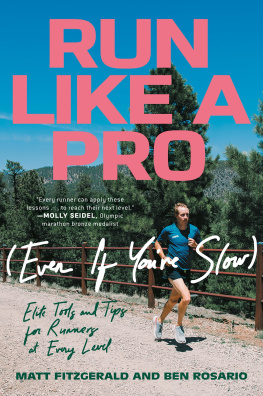
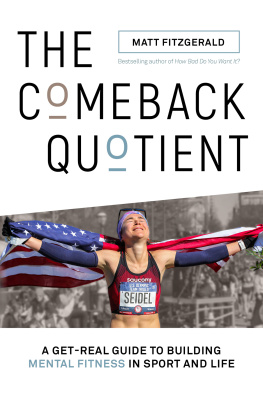
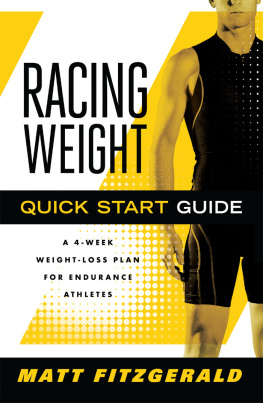
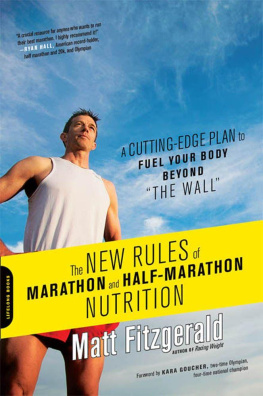


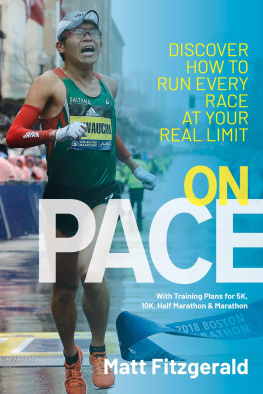
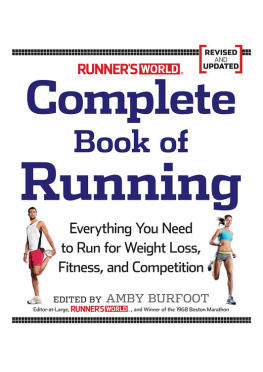

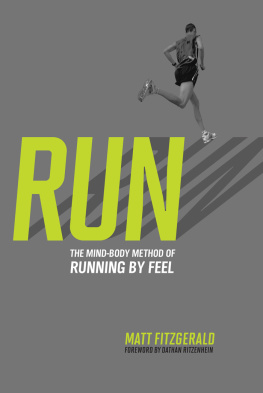
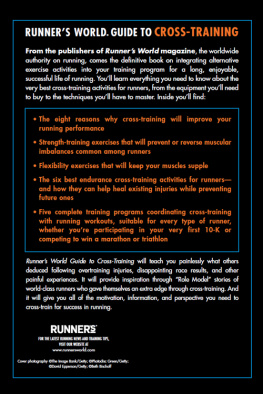
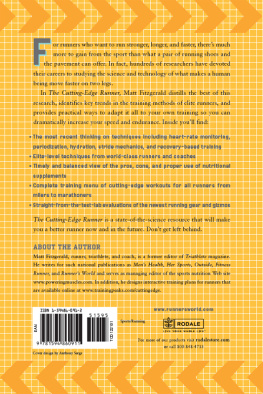
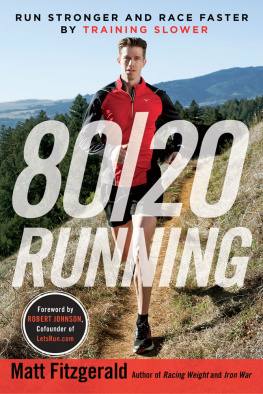
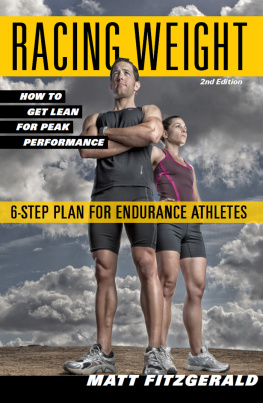
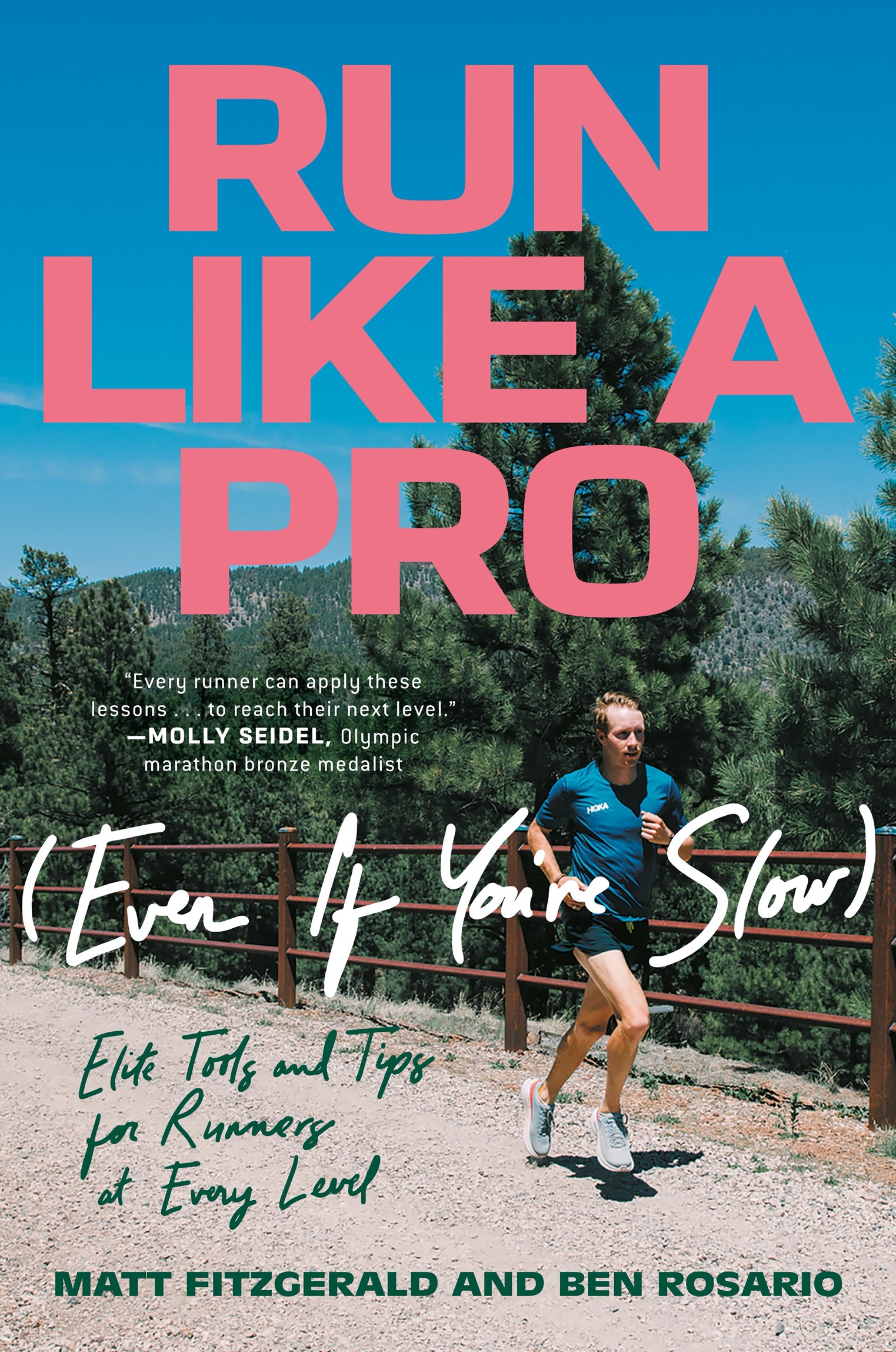
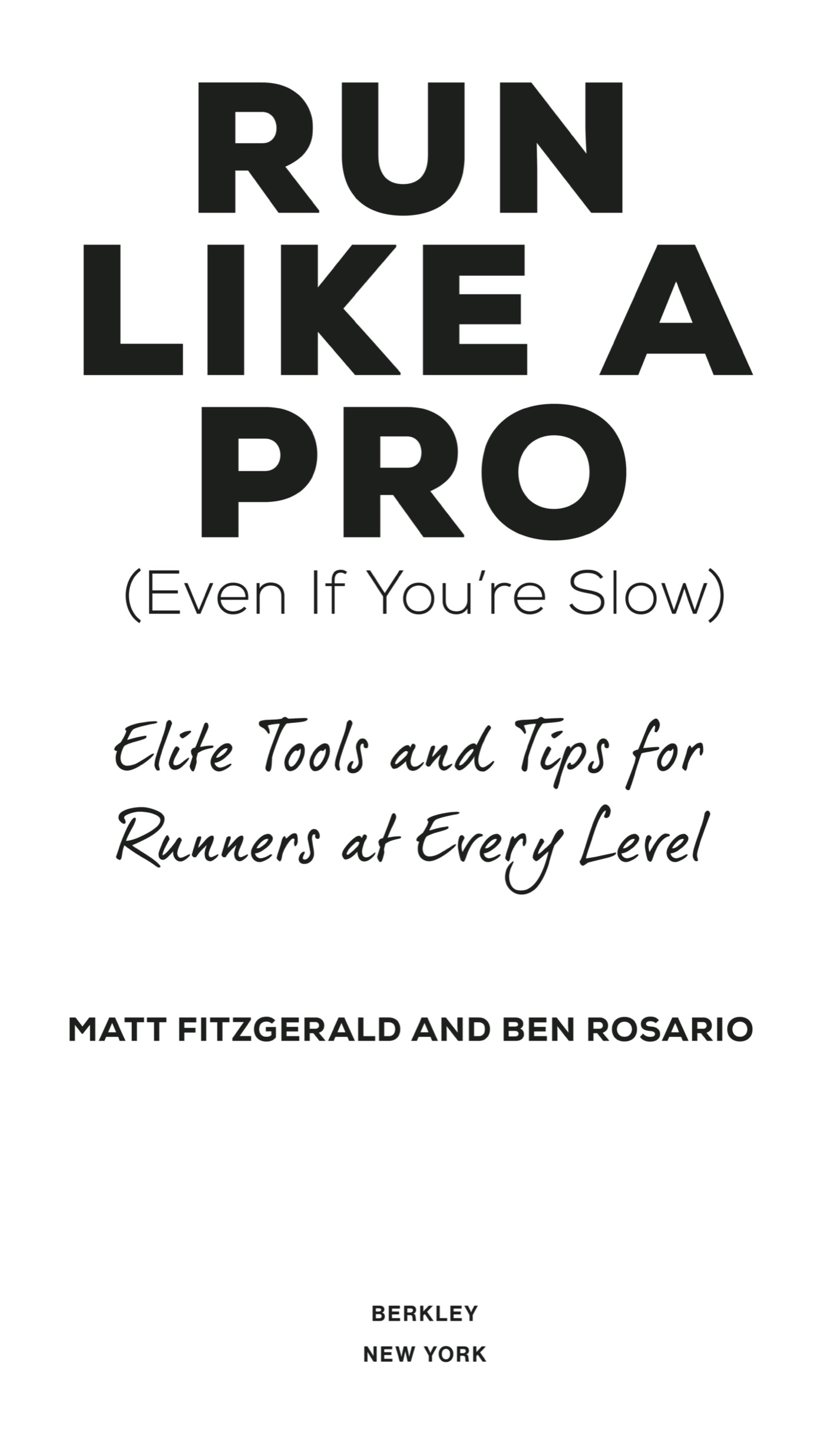
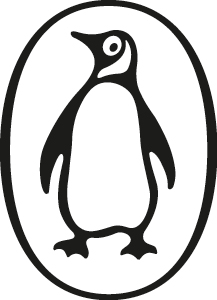 Copyright 2022 by Matt Fitzgerald and Ben Rosario Penguin Random House supports copyright. Copyright fuels creativity, encourages diverse voices, promotes free speech, and creates a vibrant culture. Thank you for buying an authorized edition of this book and for complying with copyright laws by not reproducing, scanning, or distributing any part of it in any form without permission. You are supporting writers and allowing Penguin Random House to continue to publish books for every reader. BERKLEY and the BERKLEY & B colophon are registered trademarks of Penguin Random House LLC. | Rosario, Ben, author. | Rosario, Ben, author.
Copyright 2022 by Matt Fitzgerald and Ben Rosario Penguin Random House supports copyright. Copyright fuels creativity, encourages diverse voices, promotes free speech, and creates a vibrant culture. Thank you for buying an authorized edition of this book and for complying with copyright laws by not reproducing, scanning, or distributing any part of it in any form without permission. You are supporting writers and allowing Penguin Random House to continue to publish books for every reader. BERKLEY and the BERKLEY & B colophon are registered trademarks of Penguin Random House LLC. | Rosario, Ben, author. | Rosario, Ben, author.